By Emily Mertz Global News
Posted June 11, 2024 6:58 pm
Updated June 11, 2024 9:30 pm
6 min read

LEAVE A COMMENT
SHARE THIS ITEM ON FACEBOOKSHARE THIS ITEM ON TWITTERSEND THIS PAGE TO SOMEONE VIA EMAILSEE MORE SHARING OPTIONSDESCREASE ARTICLE FONT SIZEINCREASE ARTICLE FONT SIZE
The death of a rare white grizzly bear in Yoho National Park, just two days after her cubs died, has sent a rippling sadness across the wildlife community.
“An emotional reaction,” said wildlife photographer John E Marriott, who called Nakoda a special bear. “Photographers, tourists, everybody flocked to get out to see her. I think a lot of people developed a very deep, emotional connection with her. For a lot of people, she was the first grizzly bear they saw.”
Marriott is also the co-founder of the Exposed Wildlife Conservancy.
“To have this kind of all unfold in the last couple weeks — first her cubs get hit and then within 24 hours, she gets hit and then within another 24 hours, she succumbs to those injuries — when I heard the news, it was devastating.”
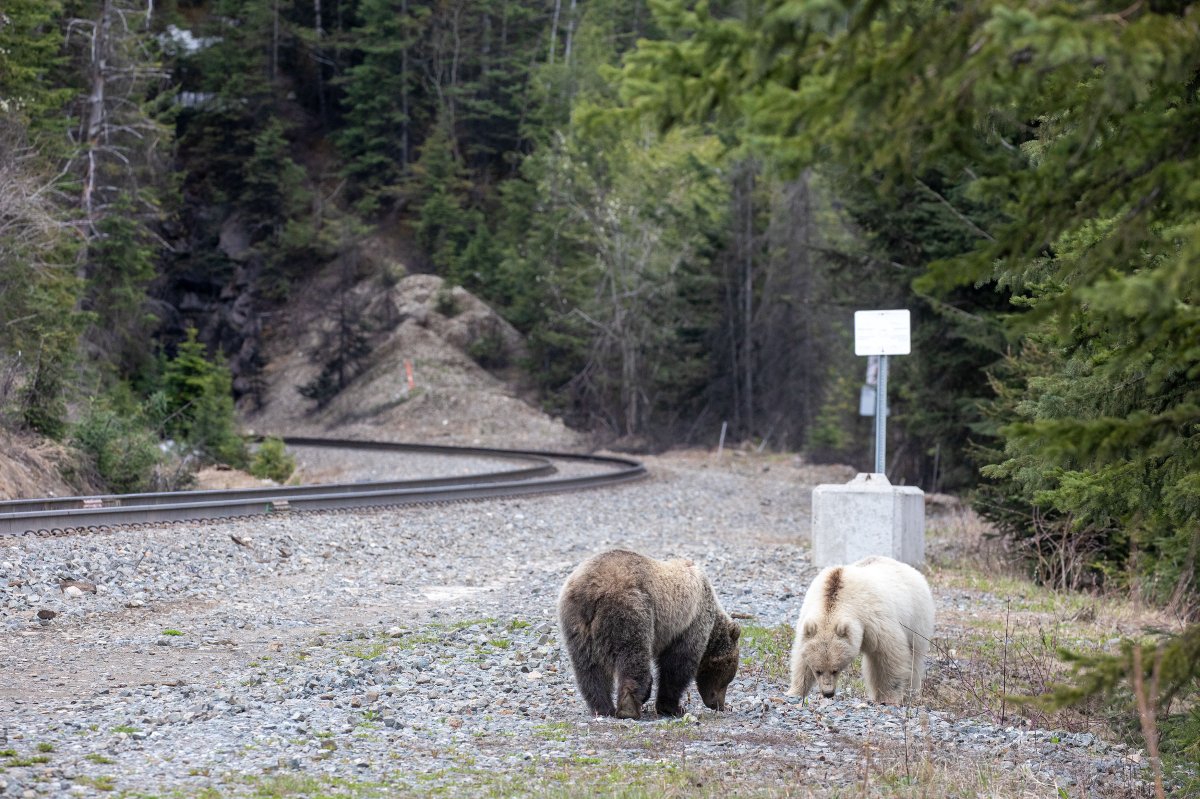
Nakoda, officially Bear 178, was found deceased on June 8, and is believed to have died from internal injuries sustained in a collision in Yoho National Park in B.C. on the Trans-Canada Highway near the Lake O’Hara turnoff on Thursday, June 6.
STORY CONTINUES BELOW ADVERTISEMENT
Nakoda’s two cubs were killed in a separate vehicle incident on the highway earlier that day.
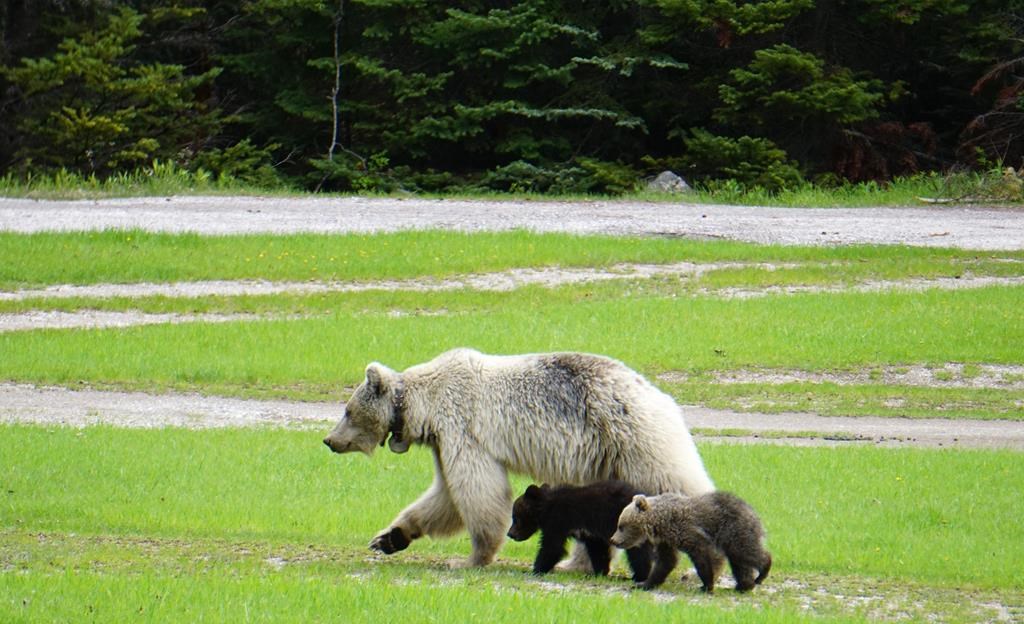
Wildlife management staff witnessed Nakoda run onto the road in front of two vehicles, after being startled by a passing train.
“One of those vehicles was in fact able to swerve and avoid a collision, but the vehicle travelling right behind it, that second vehicle, was unable to react in time and that vehicle struck the bear,” Saundi Stevens, a Parks Canada wildlife management specialist, said on Monday.
After the incident, Bear 178 climbed over a fence and was moving with a slight limp. Wildlife officials said they were hopeful she would recover from her injuries, but Nakoda was found dead two days later after her GPS collar sent a mortality signal.

1:59Parks Canada officials remind visitors of bear safety after death of popular white grizzly
“Not only has this taken a real emotional toll on wildlife lovers, but I can’t imagine what the Parks Canada staff is going through,” Marriott said. “For two years, they’ve been monitoring her from dawn to dusk, and they’ve been doing a fantastic job keeping her alive, but there’s just so much going on that with all the mitigation measures and the levers that they’re pulling, they still weren’t able to keep her on the landscape and that’s a real shame.
STORY CONTINUES BELOW ADVERTISEMENT
“I feel terribly for them just as I feel terribly for Nakoda and her cubs.”
Breaking news from Canada and around the world sent to your email, as it happens.
Parks Canada had been monitoring the white grizzly bear since 2022, when she was fitted with a GPS collar.
This was her first set of cubs, Marriott said.
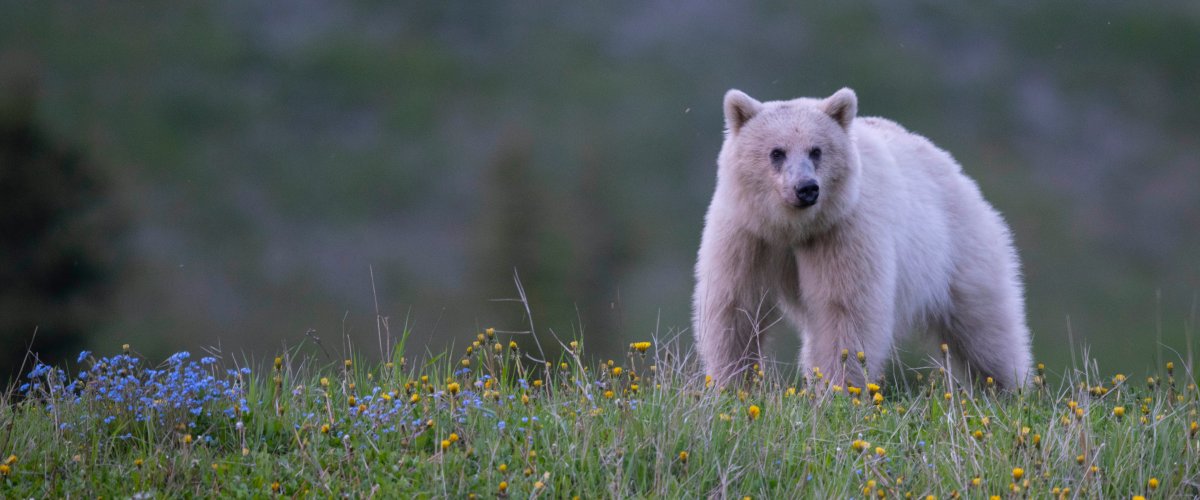
“Nakoda came out six or seven years ago. She was spotted in the backcountry a couple of times. People sort of knew there was a white cub that existed.”
Two years later, when she was weaned, Nakoda started appearing roadside with her sister, Marriott said, “and just caused a sensation.”
“It’s pretty unique to have a grizzly bear that shows up by the Trans Canada Highway — it’s Canada’s busiest highway … and then, one that has white fur, a white coat.”
STORY CONTINUES BELOW ADVERTISEMENT

1:59Rare white grizzly bear spotted in B.C.’s Yoho National Park
He says as people flock to parks and other areas where wildlife live, those areas become more populated and development increases, which puts increasing pressure on the animals.
“We’ve just got too much development going on,” Marriott said. “We have to make a decision. I live in Canmore and we’re doubling, tripling in size in the next decade. What’s going to happen with the wildlife? What are the long-term side effects going to be?
“We already know from scientists and biologists who have studied this area that our wildlife corridors are being choked off.
“Fifty years from now, there might be no grizzly bears left in this entire Bow Valley Corridor. Are we willing to live with that? I personally am not.
“It’s OK to love the wildlife. We now have to push back on the other side and make sure we’re not loving them to death.”
STORY CONTINUES BELOW ADVERTISEMENT
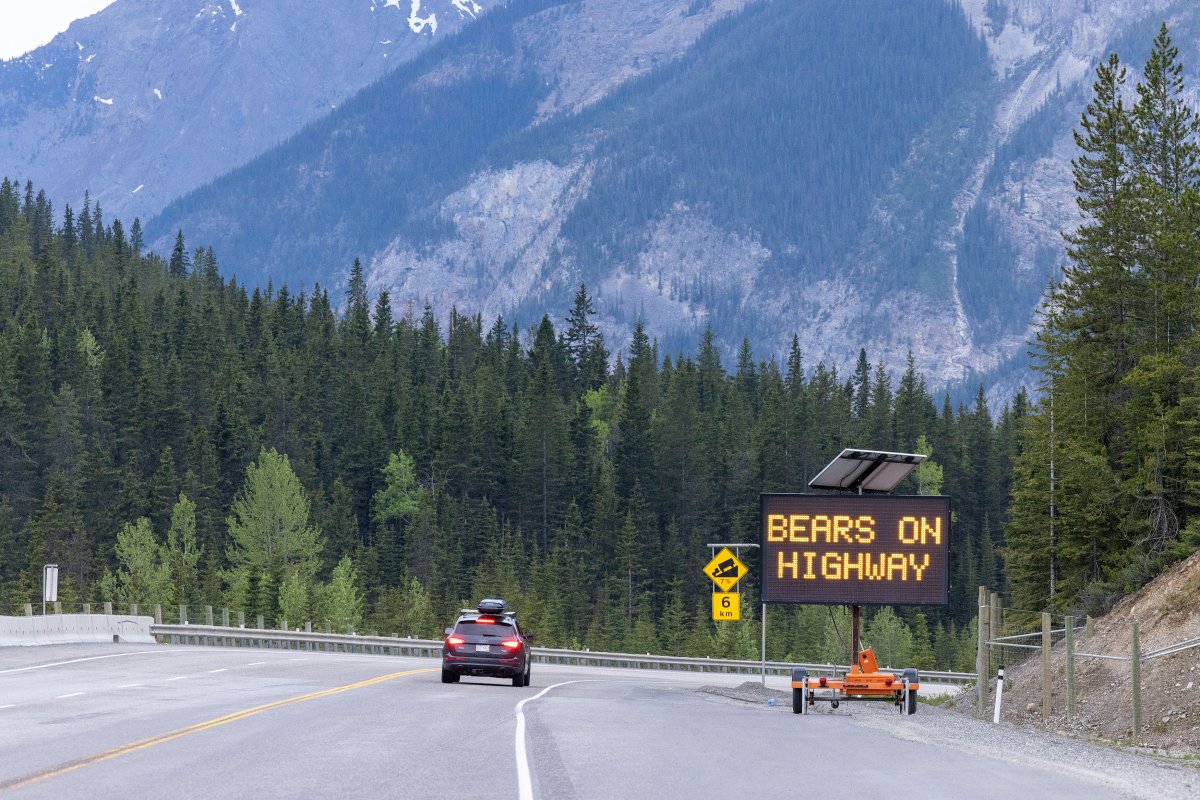
Marriott encourages people to support conservation groups, get involved, raise awareness, volunteer and write to their government officials.
“We need to do more to protect animals like Nakoda and her cubs,” he said. “This is the sixth breeding female now killed in the last four years in that Lake Louise core sub-population of grizzly bears and that’s not sustainable.”
Parks Canada data shows 13 bears – black and grizzly – have been killed so far this year by motor vehicles or trains in the Yoho, Kootenay, Lake Louise region. More than 60 bears have died that way over the last five years.
Four grizzly bears have been killed by road or rail traffic so far in 2024. Last year, there was one.
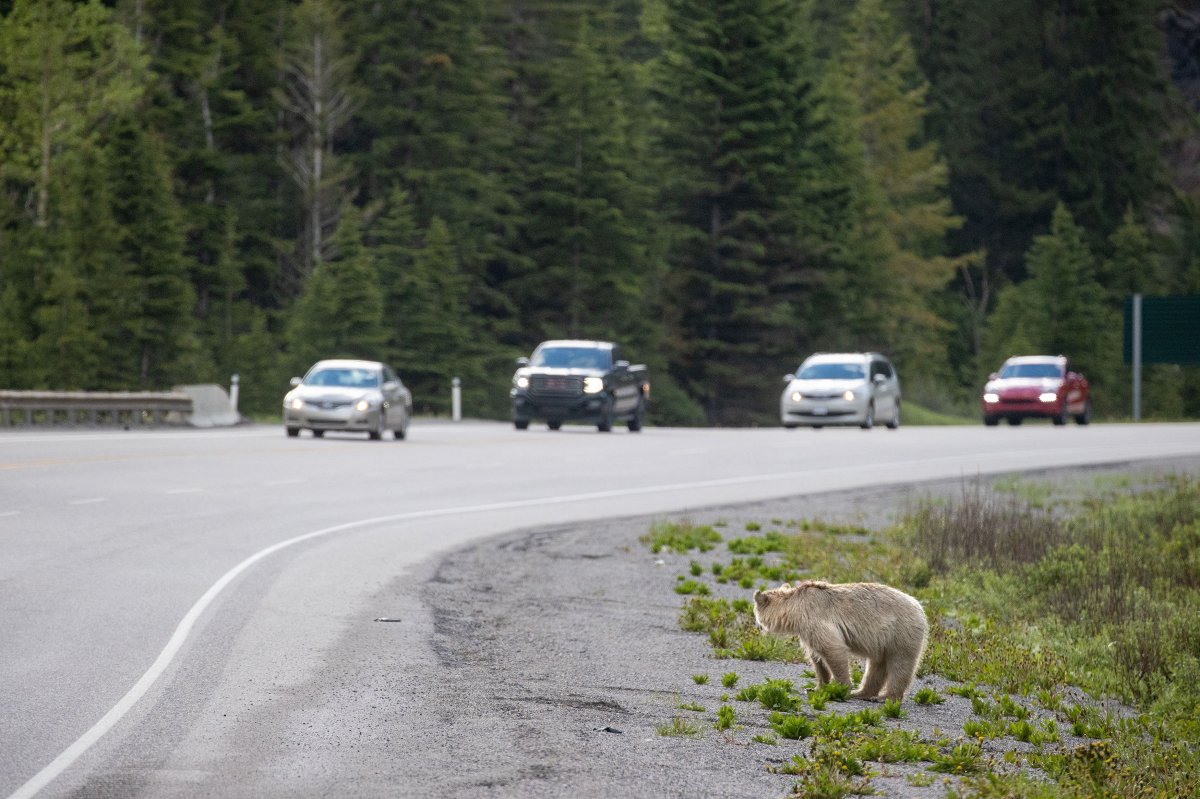
“I think there’s a real sense of mourning and of devastation within the wildlife lovers community and I don’t want to just brush that aside,” Marriott said. “We can use that emotion to affect change.
STORY CONTINUES BELOW ADVERTISEMENT
“We need to put pressure on Parks Canada to start dealing with some of their partners — Canadian Pacific Railway, Transport Canada — to start making sure that if we have another grizzly bear that shows up like this, that it’s not going to be a couple of years and boom, they’re hit by something,” he said.
“We have such an insatiable need to get from A to B quickly. There is a way this could have been prevented. We could have said: ‘You know what? There’s grizzly bears along the road, everybody has to drive slowly.’ We put in speed bumps, we have mandatory 24-hour speed enforcement, we have 24-hour monitoring. But it all requires money and it’s going to require a change to how society operates and so far, we haven’t shown a willingness to do that to keep special bears like Nakoda on the landscape.”
2:24Grim findings for B.C. grizzly bears in East Kootenay valley
Grizzly bears are a threatened species in Alberta.
STORY CONTINUES BELOW ADVERTISEMENT
“Are there any bears that are going to be able to figure out how to live in this valley with five million people, a national highway, a national railway, golf courses, ski hills, everything? Or are we just going to have an area that grizzly bears become extirpated from?” Marriott asked.
Nicholas Scapillati, executive director of the Grizzly Bear Foundation, said grizzly bear deaths are going down thanks to the efforts of wildlife officers and conservation groups.
“But we need to do more for nature.”
He says humans continue to infringe on animals’ habitat and there’s a biodiversity crisis.
“The parks are doing a wonderful job of trying to protect (bears) but it’s sort of a Band-Aid situation. What we really need to be looking at is how we approach our relationship with nature, with these wild spaces, and these wild animals and give them the space and the opportunity to live the lives they need in the wild.
“We need to do a lot more management of ourselves,” Scapillati said.
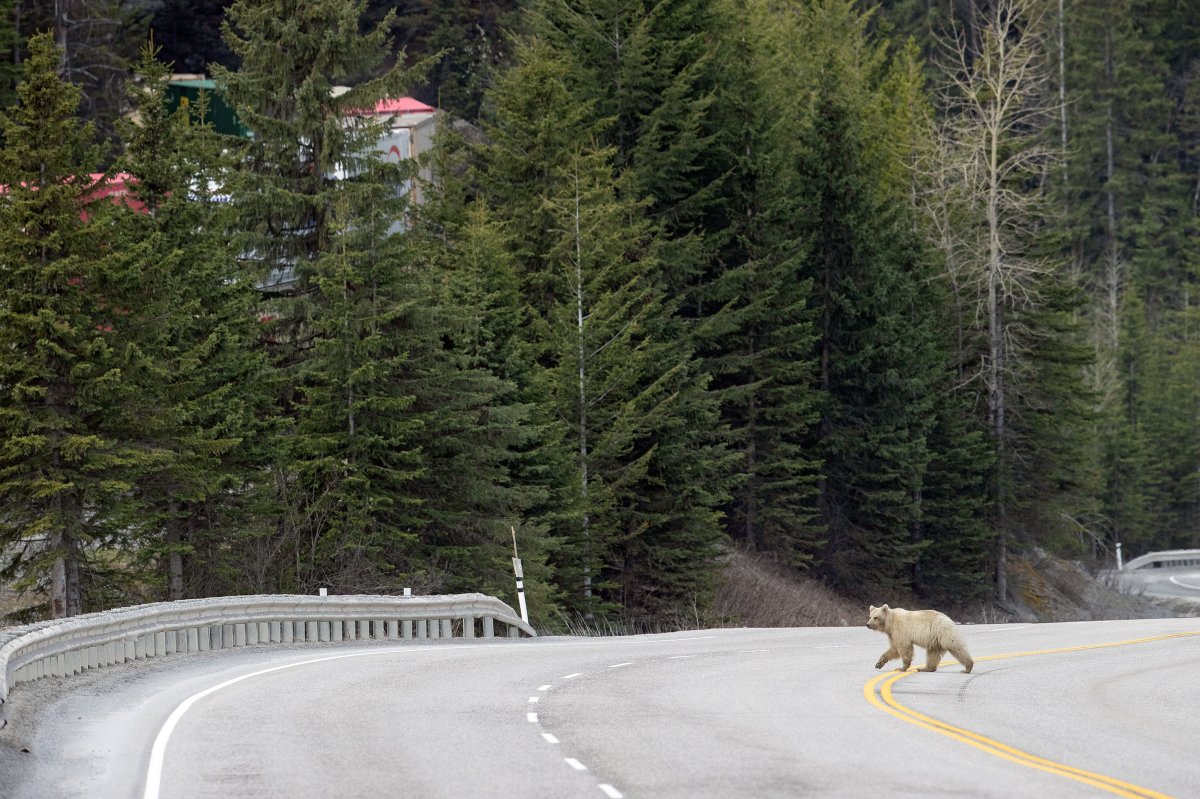
He says more needs to be done to curtail the impact humans have.
STORY CONTINUES BELOW ADVERTISEMENT
“What we’re seeing with grizzly bear deaths is the pressure of development, the impact of climate change on their food sources and habitat. So, in areas that are under development pressure, where humanity is reaching further into these places — whether it’s in our national parks or resource exploration — it’s putting these bears into situations where it makes it really hard to survive.”
Scapillati said people around the world are grieving the loss of Nakoda and her cubs.
“Bears inspire a sense of wonder. They capture our hearts and our imaginations.
“The reaction we’re seeing from the death of this charismatic animal Nakoda is sad but it reminds us how connected we are to nature and … people are paying more attention.”


So beyond tragic…they need to put in the highway traffic controls they spoke of; don’t know what can be done about the railway……
LikeLiked by 1 person